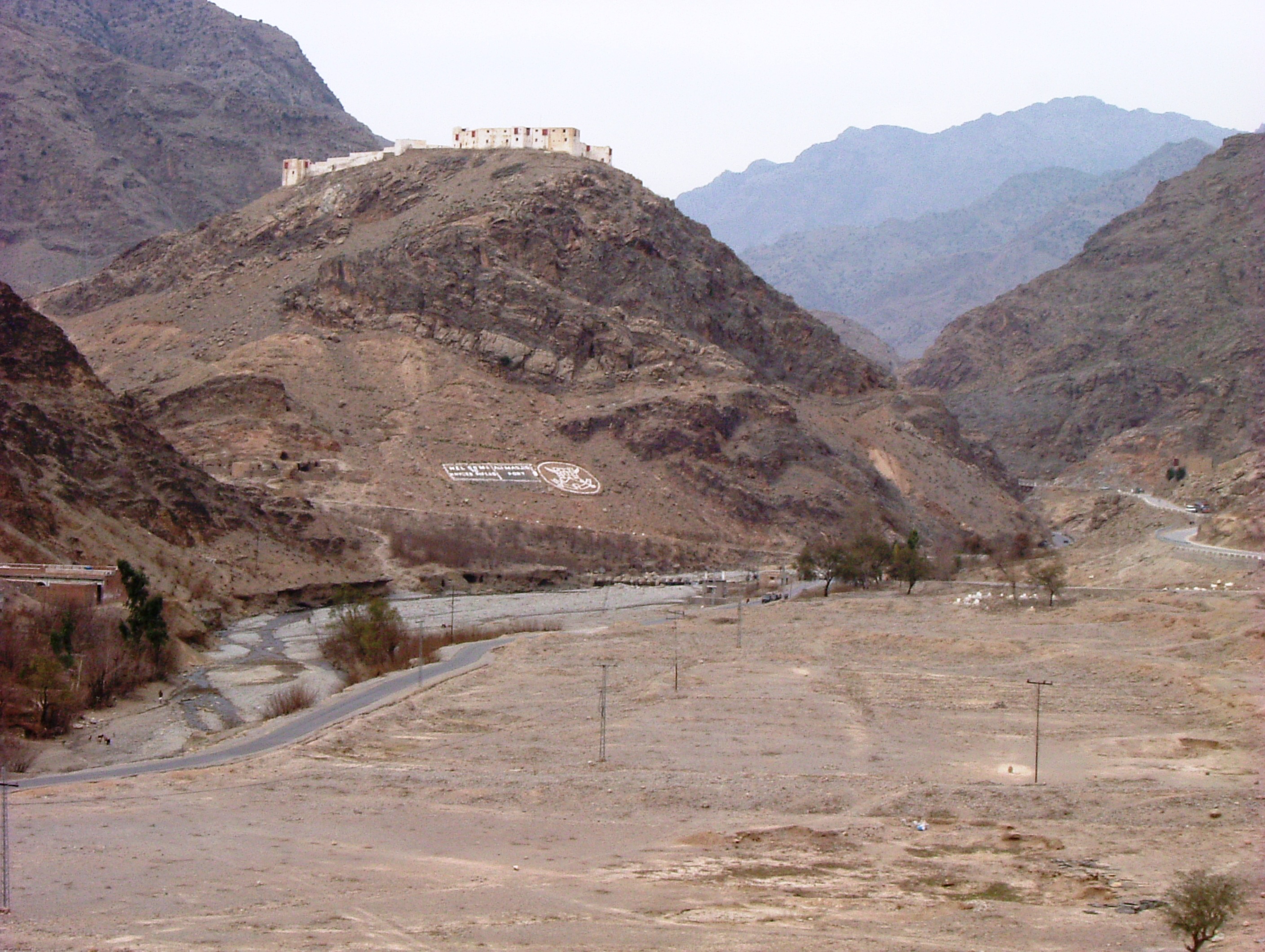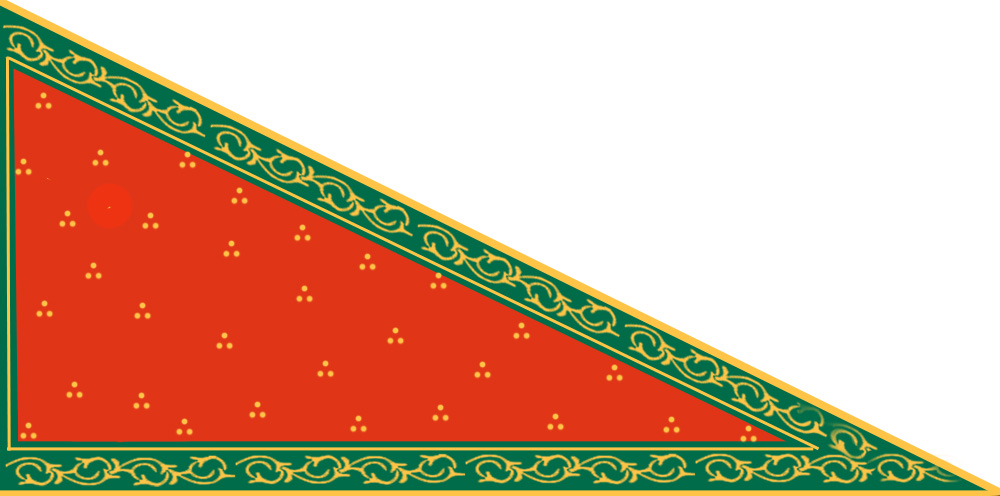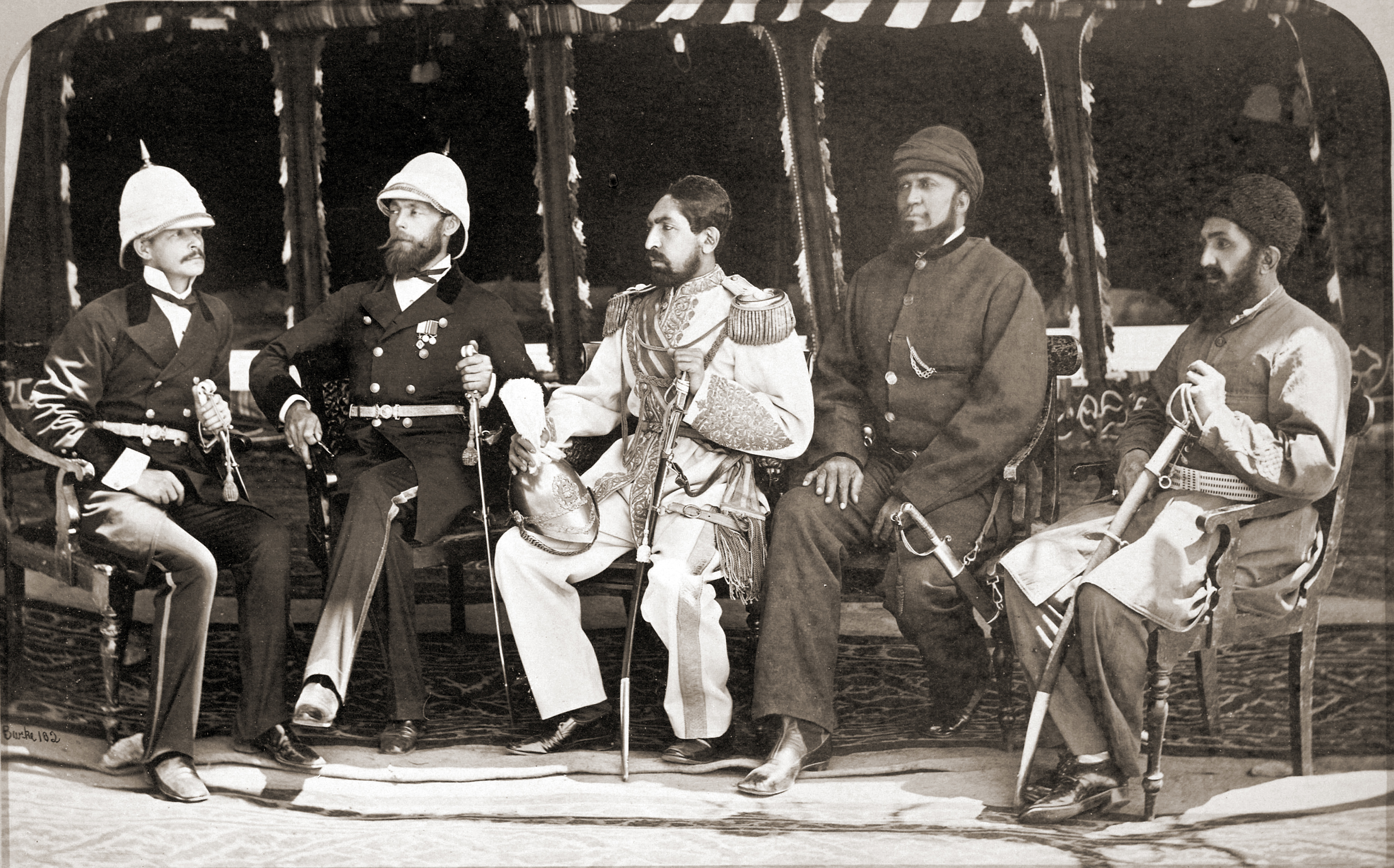|
Ali Masjid Fort
Ali Masjid Fort (Pashto:علي مسجد فورټ; ) is situated on a high location above Ali Masjid, the narrowest point of the Khyber Pass, in the Khyber Pakhtunkhwa province on the north west frontier of Pakistan. Originally within Afghanistan, the fort was first constructed in 1837 under Emir Dost Muhammad Khan, and was the location for a number of conflicts between Afghan and British-led forces during the 19th century. The fort was captured by the British in 1839 during the First Anglo-Afghan War, and again in November 1878 during the Second Anglo-Afghan War at the Battle of Ali Masjid. In May 1879 the Khyber Pass was ceded to British control by the Treaty of Gandamak The Treaty of Gandamak (Dari: معاهده گندمک, Pashto: د گندمک تړون) officially ended the first phase of the Second Anglo-Afghan War. Mohammad Yaqub Khan ceded various frontier areas to Britain while retaining full control of Af ..., after which the fort was within the British Raj. Treaty of ... [...More Info...] [...Related Items...] OR: [Wikipedia] [Google] [Baidu] |
Khyber Pakhtunkhwa
Khyber Pakhtunkhwa (; ps, خېبر پښتونخوا; Urdu, Hindko: خیبر پختونخوا) commonly abbreviated as KP or KPK, is one of the Administrative units of Pakistan, four provinces of Pakistan. Located in the Geography of Pakistan, northwestern region of the country, Khyber Pakhtunkhwa is the smallest province of Pakistan by land area and the Demographics of Pakistan, third-largest province by population after Punjab, Pakistan, Punjab and Sindh. It shares land borders with the Pakistani provinces of Balochistan, Pakistan, Balochistan to the south, Punjab, Pakistan, Punjab to the south-east and province of Gilgit-Baltistan to the north and north-east, as well as Islamabad Capital Territory to the east, Azad Jammu and Kashmir, Autonomous Territory of Azad Jammu and Kashmir to the north-east. It shares an Durand Line, international border with Afghanistan to the west. Khyber Pakhtunkhwa is known as a tourist hot spot for adventurers and explorers and has a varied landsca ... [...More Info...] [...Related Items...] OR: [Wikipedia] [Google] [Baidu] |
Pakistan
Pakistan ( ur, ), officially the Islamic Republic of Pakistan ( ur, , label=none), is a country in South Asia. It is the world's List of countries and dependencies by population, fifth-most populous country, with a population of almost 243 million people, and has the world's Islam by country#Countries, second-largest Muslim population just behind Indonesia. Pakistan is the List of countries and dependencies by area, 33rd-largest country in the world by area and 2nd largest in South Asia, spanning . It has a coastline along the Arabian Sea and Gulf of Oman in the south, and is bordered by India to India–Pakistan border, the east, Afghanistan to Durand Line, the west, Iran to Iran–Pakistan border, the southwest, and China to China–Pakistan border, the northeast. It is separated narrowly from Tajikistan by Afghanistan's Wakhan Corridor in the north, and also shares a maritime border with Oman. Islamabad is the nation's capital, while Karachi is its largest city and fina ... [...More Info...] [...Related Items...] OR: [Wikipedia] [Google] [Baidu] |
Pashto
Pashto (,; , ) is an Eastern Iranian language in the Indo-European language family. It is known in historical Persian literature as Afghani (). Spoken as a native language mostly by ethnic Pashtuns, it is one of the two official languages of Afghanistan alongside Dari, Constitution of Afghanistan �''Chapter 1 The State, Article 16 (Languages) and Article 20 (Anthem)''/ref> and it is the second-largest provincial language of Pakistan, spoken mainly in Khyber Pakhtunkhwa and the northern districts of Balochistan. Likewise, it is the primary language of the Pashtun diaspora around the world. The total number of Pashto-speakers is at least 40 million, (40 million) although some estimates place it as high as 60 million. Pashto is "one of the primary markers of ethnic identity" amongst Pashtuns. Geographic distribution A national language of Afghanistan, Pashto is primarily spoken in the east, south, and southwest, but also in some northern and western parts of the count ... [...More Info...] [...Related Items...] OR: [Wikipedia] [Google] [Baidu] |
Ali Masjid
Ali Masjid (Pashto and ) is the narrowest point of the Khyber Pass. It is located in Khyber District of Khyber Pakhtunkhwa, Pakistan. It is around east of the city of Landi Kotal (West of Peshawar) and has an elevation of . The width of the Khyber near Ali Masjid was earlier too narrow for two fully laden camels to pass each other, but since has been widened. Name origin It was named in memory of Ali, the cousin of the Islamic prophet Muhammad. A mosque and a shrine has been built here in the memory of Ali, who visited this place according to a local tradition. There is also a huge boulder which carries the marks of a hand believed to be that of Ali. History Ali Masjid is located at the narrowest point in the Khyber Pass. It contains a shrine to ʻAlī ibn Abī Ṭālib (circa 600–661) the cousin and son-in-law of Muhammad.Caption of Ali Masjid from Bewlow WDL11473, Library of Congress Travellers would stop to pray at the shrine while on the trading route between Kadam and ... [...More Info...] [...Related Items...] OR: [Wikipedia] [Google] [Baidu] |
Khyber Pass
The Khyber Pass (خیبر درہ) is a mountain pass in the Khyber Pakhtunkhwa province of Pakistan, on the border with the Nangarhar Province of Afghanistan. It connects the town of Landi Kotal to the Valley of Peshawar at Jamrud by traversing part of the White Mountains. Since it was part of the ancient Silk Road, it has been a vital trade route between Central Asia and the Indian subcontinent and a strategic military choke point for various states that controlled it. Following Asian Highway 1 ( AH1), the summit of the pass at Landi Kotal is inside Pakistan, descending to Jamrud, about from the Afghan border. The inhabitants of the area are predominantly from the Afridi and Shinwari tribes of Pashtuns. Geography The Khyber Pass is a mountain pass in the Khyber Pakhtunkhwa province of Pakistan, on the border with Afghanistan ( Nangarhar Province). Following Asian Highway 1 ( AH1), the summit of the pass at the town of Landi Kotal is inside Pakistan, descending ... [...More Info...] [...Related Items...] OR: [Wikipedia] [Google] [Baidu] |
Emirate Of Afghanistan
The Emirate of Afghanistan also referred to as the Emirate of Kabul (until 1855) ) was an emirate between Central Asia and South Asia that is now today's Afghanistan and some parts of today's Pakistan (before 1893). The emirate emerged from the Durrani Empire, when Dost Mohammad Khan, the founder of the Barakzai dynasty in Kabul, prevailed. The history of the Emirate was dominated by the 'Great Game' between the Russian Empire and the United Kingdom for supremacy in Central Asia. This period was characterized by European influence in Afghanistan. The Emirate of Afghanistan continued the Durrani Empire's war with the Sikh Empire, losing control of the former Afghan stronghold of the Valley of Peshawar at the Battle of Nowshera on 14 March 1823. This was followed in 1839 by the First Anglo-Afghan War with British forces. The war eventually resulted in victory for Afghans, with the British withdrawal and Dost Mohammad being reinstalled to the throne. However, during the S ... [...More Info...] [...Related Items...] OR: [Wikipedia] [Google] [Baidu] |
Dost Muhammad Khan
Dost Mohammad Khan Barakzai (Pashto/ Persian: ; 23 December 17929 June 1863), nicknamed the Amir-i Kabir, Also titled Amir al-Mu'minin, was a member of the Barakzai dynasty and one of the prominent rulers of the Emirate of Afghanistan. His 37-year rule was important in the creation of modern Afghanistan. With the decline of the Durrani dynasty, he became the Emir of Kabul in 1826. He was the 11th son of Payendah Khan, chief of the Barakzai Pashtuns, who was killed in 1799 by Afghan Emperor Zaman Shah Durrani. Dost Mohammad began his official reign at the beginning of his rule in 1826 when he usurped Kabul. However, he had taken Kabul a few years prior in 1818, as well as later returning to power in 1843 after the First Anglo-Afghan War, where his rule was disputed from 1839 to 1842 by Shah Shuja Durrani. When Dost Mohammad ascended to the rule of Kabul, the Afghan realm faced a period of decline. Beset by civil war between the sons of Timur Shah Durrani, the formerly large Durr ... [...More Info...] [...Related Items...] OR: [Wikipedia] [Google] [Baidu] |
First Anglo-Afghan War
The First Anglo-Afghan War ( fa, جنگ اول افغان و انگلیس) was fought between the British Empire and the Emirate of Kabul from 1838 to 1842. The British initially successfully invaded the country taking sides in a succession dispute between emir Dost Mohammad ( Barakzai) and former emir Shah Shujah (Durrani), whom they reinstalled upon occupying Kabul in August 1839. The main British Indian force occupied Kabul and endured harsh winters. The force and its camp followers were almost completely massacred during the 1842 retreat from Kabul. The British then sent an ''Army of Retribution'' to Kabul to avenge the destruction of the previous forces. After recovering prisoners, they left Afghanistan by the end of the year. Dost Mohammed returned from exile in India to resume his rule. It was one of the first major conflicts during the Great Game, the 19th century competition for power and influence in Central Asia between Britain and Russia. Background Causes ... [...More Info...] [...Related Items...] OR: [Wikipedia] [Google] [Baidu] |
Second Anglo-Afghan War
The Second Anglo-Afghan War (Dari: جنگ دوم افغان و انگلیس, ps, د افغان-انګرېز دويمه جګړه) was a military conflict fought between the British Raj and the Emirate of Afghanistan from 1878 to 1880, when the latter was ruled by Sher Ali Khan of the Barakzai dynasty, the son of former Emir Dost Mohammad Khan (Emir of Afghanistan), Dost Mohammad Khan. The war was part of the Great Game between the British Empire, British and Russian empires. The war was split into two campaigns – the first began in November 1878 with the British Raj, British invasion of Afghanistan from British Raj, India. The British were quickly victorious and forced the Amir – Sher Ali Khan to flee. Ali's successor Mohammad Yaqub Khan immediately sued for peace and the Treaty of Gandamak was then signed on 26 May 1879. The British sent an envoy and mission led by Sir Louis Cavagnari to Kabul, but on 3 September this mission was massacred and the conflict was reignited by M ... [...More Info...] [...Related Items...] OR: [Wikipedia] [Google] [Baidu] |
Battle Of Ali Masjid
The Battle of Ali Masjid, which took place on 21 November 1878, was the opening battle in the Second Anglo-Afghan War between the British forces, under Lieutenant-General Sir Samuel James Browne, and the Afghan forces, under Ghulam Haider Khan. The perceived offence of an Afghan general's refusal to allow a British envoy entrance to the country was used as an excuse to attack the fortress of Ali Masjid, as the opening battle in the war. Despite numerous setbacks, including half the troops getting lost or delayed and missing the battle entirely, the British were lucky that the Afghans abandoned their position overnight. Context Following the 1837 Battle of Jamrud, Dost Muhammad Khan had built the fortress of Ali Masjid to assert his sovereignty over the Khyber region. However, the fortress was captured only two years later by 11,000 troops commanded by Lt. Col. Claude Martin Wade on 26 July 1839. On 21 September 1878, two months before the battle, British envoy General Nev ... [...More Info...] [...Related Items...] OR: [Wikipedia] [Google] [Baidu] |
Treaty Of Gandamak
The Treaty of Gandamak (Dari: معاهده گندمک, Pashto: د گندمک تړون) officially ended the first phase of the Second Anglo-Afghan War. Mohammad Yaqub Khan ceded various frontier areas to Britain while retaining full control of Afghanistan's foreign affairs. It was signed on 26May 1879 by King Mohammad Yaqub Khan of Afghanistan and Sir Louis Cavagnari of British's Government of India at a British army camp near the village of Gandamak, about east of Kabul. The treaty was ratified by Lord Edward Robert Bulwer Lytton, Viceroy of India, on 30 May 1879. Most historical writings consider the Treaty of Gandamak as the prelude to the second phase of the Second Anglo-Afghan War, 1879–1880. As result of the British victory at the Battle of Kandahar in 1880 the treaty was reaffirmed and the British appointed Abdur Rahman as Emir. Background On 22 July 1878, a Russian delegation arrived in Kabul without the explicit invitation of Amir Sher Ali Khan. In early Augus ... [...More Info...] [...Related Items...] OR: [Wikipedia] [Google] [Baidu] |
British Raj
The British Raj (; from Hindi language, Hindi ''rāj'': kingdom, realm, state, or empire) was the rule of the British The Crown, Crown on the Indian subcontinent; * * it is also called Crown rule in India, * * * * or Direct rule in India, * Quote: "Mill, who was himself employed by the British East India company from the age of seventeen until the British government assumed direct rule over India in 1858." * * and lasted from 1858 to 1947. * * The region under British control was commonly called India in contemporaneous usage and included areas directly administered by the United Kingdom of Great Britain and Ireland, United Kingdom, which were collectively called Presidencies and provinces of British India, British India, and areas ruled by indigenous rulers, but under British British paramountcy, paramountcy, called the princely states. The region was sometimes called the Indian Empire, though not officially. As ''India'', it was a founding member of the League of Nations, a ... [...More Info...] [...Related Items...] OR: [Wikipedia] [Google] [Baidu] |






_WDL11496.png)


